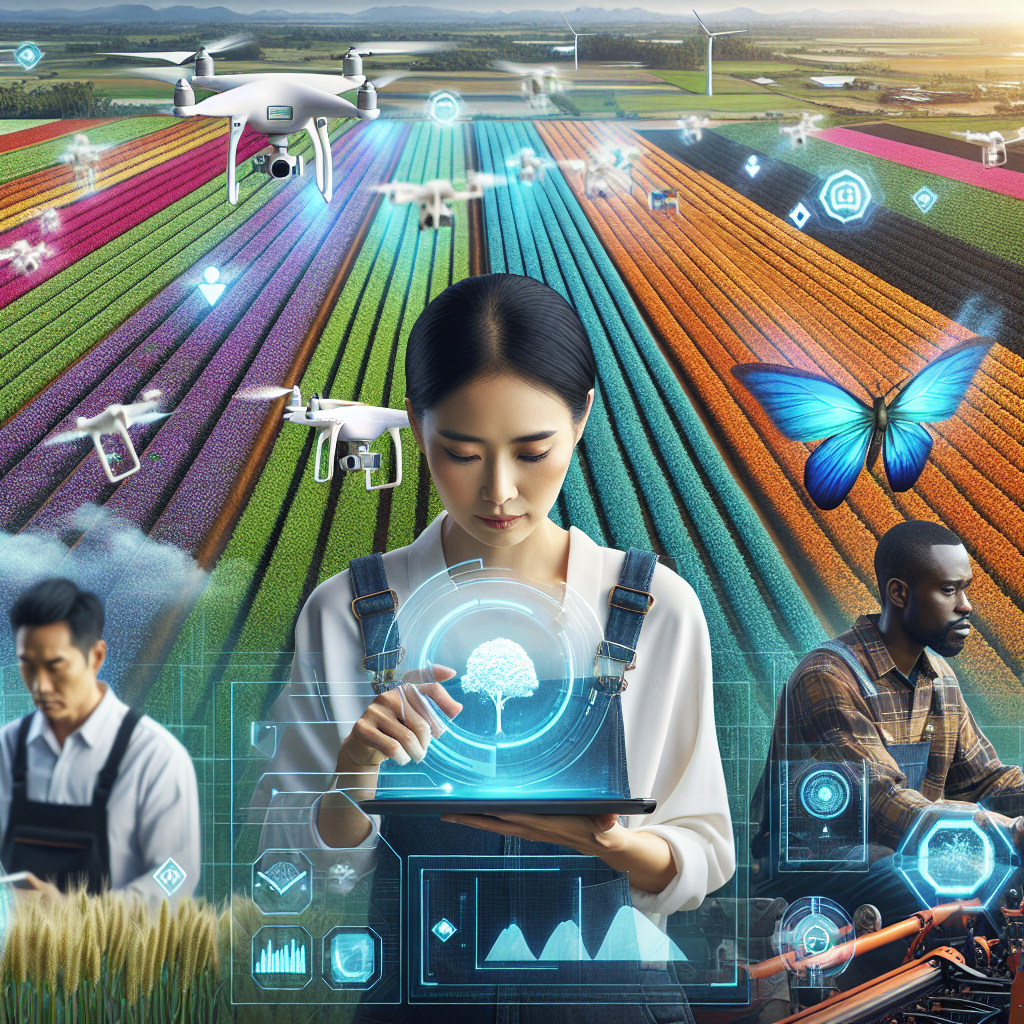Agriculture is one of the most important industries in the world, providing food, fiber, and fuel for billions of people. However, it is also one of the most risky industries, with farmers facing a wide range of risks including weather events, pest and disease outbreaks, market fluctuations, and regulatory changes. In order to manage these risks effectively, farmers need access to accurate and timely information to make informed decisions about their operations.
One of the ways that farmers can improve their risk assessment and management is by using artificial intelligence (AI) technologies. AI has the potential to revolutionize the way that farmers assess and manage risk, by providing them with real-time data and predictive analytics that can help them make better decisions. In this article, we will explore the benefits of AI in agricultural risk assessment and management, and how it can help farmers improve their operations and increase their profitability.
Benefits of AI in Agricultural Risk Assessment and Management
1. Improved Decision Making: One of the key benefits of using AI in agricultural risk assessment and management is the ability to make better decisions. AI technologies can analyze vast amounts of data from multiple sources, such as weather forecasts, soil samples, and crop yields, to provide farmers with real-time insights into their operations. This can help farmers identify potential risks before they occur, and take proactive measures to mitigate them.
2. Increased Efficiency: AI can also help farmers improve the efficiency of their operations. By automating tasks such as soil testing, pest monitoring, and irrigation scheduling, AI technologies can save farmers time and labor costs. This allows farmers to focus on more strategic tasks, such as crop planning and marketing, that can help them increase their profitability.
3. Enhanced Crop Yields: AI can also help farmers improve their crop yields by providing them with insights into factors that can affect crop growth, such as soil health, nutrient levels, and pest infestations. By analyzing this data, AI technologies can help farmers optimize their growing practices to maximize yields and reduce losses.
4. Better Risk Management: AI can help farmers identify and manage risks more effectively. By analyzing historical data and real-time information, AI technologies can identify patterns and trends that can help farmers anticipate risks, such as weather events or market fluctuations. This can help farmers develop risk management strategies that can protect their operations and ensure their long-term sustainability.
5. Cost Savings: By improving decision making, increasing efficiency, and enhancing crop yields, AI can help farmers reduce costs and increase their profitability. By optimizing inputs such as water, fertilizers, and pesticides, AI technologies can help farmers reduce waste and improve resource allocation. This can help farmers reduce their production costs and improve their bottom line.
FAQs
Q: How can AI help farmers assess and manage weather-related risks?
A: AI technologies can analyze weather data from multiple sources, such as satellites, weather stations, and sensors, to provide farmers with real-time insights into weather patterns and trends. This can help farmers anticipate weather events, such as droughts or storms, and take proactive measures to protect their crops and livestock.
Q: Can AI help farmers reduce pest and disease outbreaks?
A: Yes, AI can help farmers reduce pest and disease outbreaks by analyzing data on pest populations, disease prevalence, and crop health. By monitoring these factors in real-time, AI technologies can help farmers identify early warning signs of pest and disease outbreaks and take immediate action to prevent them from spreading.
Q: How can farmers access AI technologies for risk assessment and management?
A: Farmers can access AI technologies for risk assessment and management through a variety of sources, such as agricultural technology companies, research institutions, and government agencies. Many of these organizations offer AI-based tools and services that can help farmers improve their operations and increase their profitability.
In conclusion, AI has the potential to revolutionize the way that farmers assess and manage risks in agriculture. By providing farmers with real-time data, predictive analytics, and actionable insights, AI technologies can help farmers make better decisions, improve efficiency, enhance crop yields, and reduce costs. As the agriculture industry continues to face increasing challenges from climate change, pest outbreaks, and market volatility, AI can play a crucial role in helping farmers adapt to these challenges and ensure the long-term sustainability of their operations.

